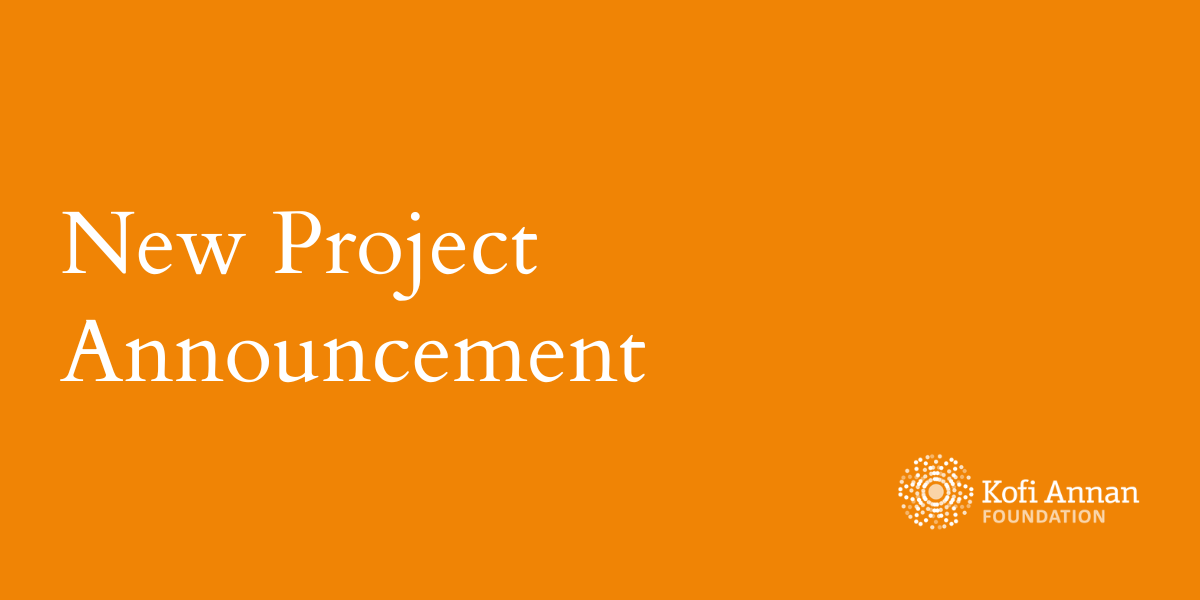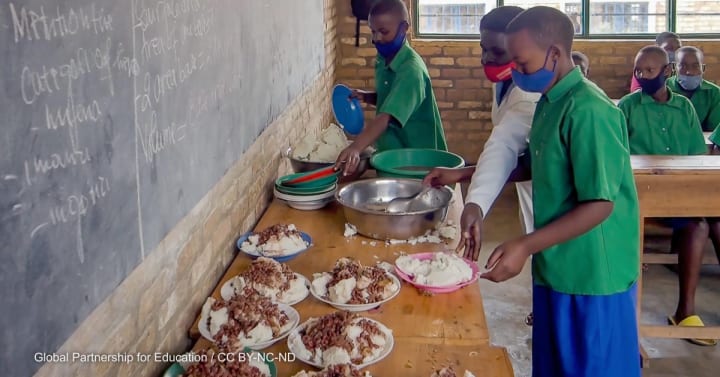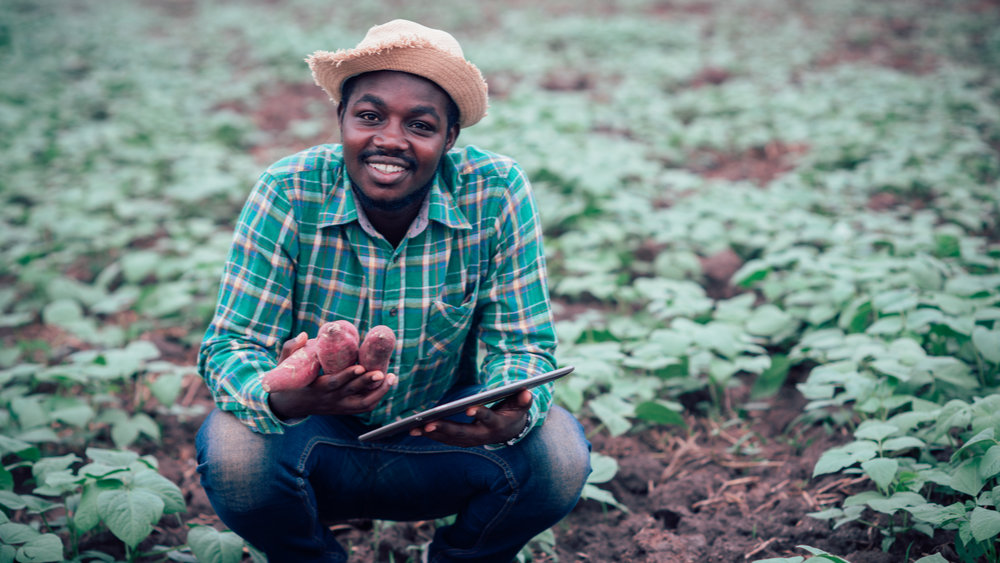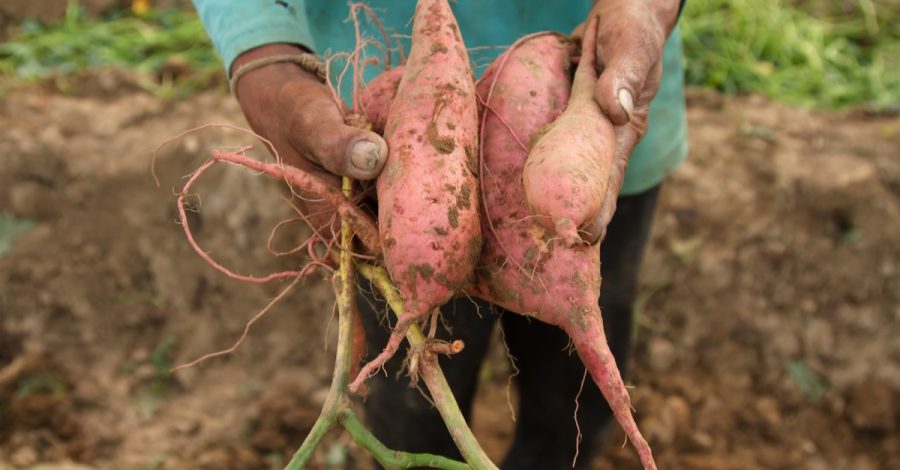Increasing the consumption of orange-fleshed sweet potato to combat malnutrition in Ghana
On Wednesday, February 16, the Kofi Annan Foundation participated in a sweet potato multi-stakeholder platform meeting. The meeting was held under the auspices of the AGRA Demand Creation and Impact Scaling Project in partnership with the Ghana Sweetpotato Value Chain Association.
The event brought together stakeholders to review progress and explore avenues to strengthen sweet potato value chains in Ghana. The meeting also focused on school feeding, as 2022 was designated by the African Union the Year of Nutrition for Africa. The sustained development of orange-fleshed sweet potato, in particular, will stimulate rural economies, generate employment and help improve nutrition – including combating vitamin A deficiency in Ghana. Government agencies and stakeholders shared ways they can help support and encourage sweet potato business in Ghana. During the hybrid event, Fabian Lange, Senior Programme Manager at the Kofi Annan Foundation, shared progress from our Demand Creation and Impact Scaling Project.
I have seen first-hand how orange-fleshed sweet potato is enabling profits for smallholder farmers, creating employment opportunities along the value chain and contributing to women’s empowerment in food systems.– Nane Annan
Nane Annan participating in the multi-stakeholder on Wednesday 16, 2022
Kofi Annan Foundation board member Nane Annan provided opening remarks for the event; an excerpt is below:
“Ladies and Gentlemen, dear friends.
I am very pleased to be with you today for this Sweetpotato Multi-stakeholder platform meeting.
Let me also once again thank AGRA for hosting us today.
I am very happy to see many critical stakeholders around the table and on-line, including the consortium member of the Demand Creation and Impact Scaling Project for OFSP.
While we represent different sectors, we are all united in our goal of strengthening rural economies and OFSP value chains as a way of tackling malnutrition and improving livelihoods.
As Dr. Forster Boateng rightly put it last time, fighting malnutrition is at the very core of this project.
Earlier this month, the African Union declared the year 2022 as the Year of Nutrition.
Why this focus on nutrition?
According to the Continental Nutrition Accountability Scorecard for Africa, about 56 million children under five are chronically undernourished and 13 million are acutely undernourished.
Vitamin A deficiencies remain a major public health problem in many African countries, making children vulnerable to infections and diseases and preventing them from developing fully.
By declaring 2022 the Year of Nutrition, the African Union is sending a strong signal that good nutrition and health should be considered a development priority.
While some progress has been made at national and continental level, for example with the adoption of nutrition policy instruments such as the Africa Regional Nutrition Strategy, focusing on nutrition in 2022 offers an opportunity to scale-up interventions aimed at improving health and well-being.
OFSP has an important role to play as it contributes to sustainable food systems that support human health and nutrition.
As we have entered the final quarter of the Demand Creation and Impact Scaling Project for OFSP, we have today the chance to look at what has been achieved so far and what can be done to scale-up nutritious OFSP value chains in Ghana.
We will hear from the consortium partners, from other sweetpotato businesses, government partners, as well as development partners and experts who kindly offered to share their experience, including from outside Ghana.
I am also looking forward to our discussions around school-feeding and exploring with you how the use of OFSP can be expanded in school feeding.
This comes at an opportune moment as we are celebrating the 7th African Day of School Feeding on 1st
I am sure that our distinguished participants agree with me that school feeding is a critical intervention in many ways: for children who benefit from being healthier and better educated, for farmers who benefit from more stable markets and demand, for women who benefit from providing services to school feeding programmes, for local communities who benefit from improved socio-economic development, and for the nation as a whole who will benefit from the full potential of future generations.
Finally, I am looking forward to hearing about some of the structures that need to be put in place and actions that must be taken to ensure the viability and sustainability of the sweetpotato businesses and value chains in Ghana, beyond the DCIS project.
I wish you a fruitful and productive meeting and look forward to what promises to be a very insightful discussion.
Thank you.”
Participants in the sweet potato multi-stakeholder platform meeting on February 16, 2022



